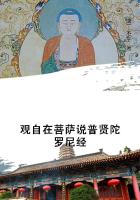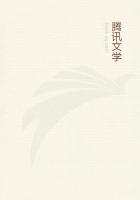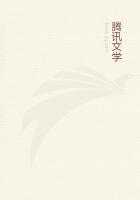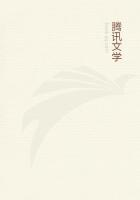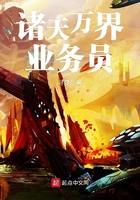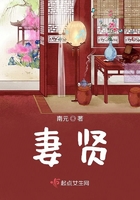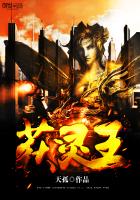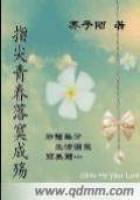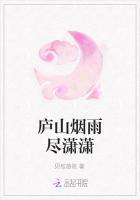One member of the Crotonian school, Alcmaeon, achieved great distinction in both anatomy and physiology. He first recognized the brain as the organ of the mind, and made careful dissections of the nerves, which he traced to the brain. He described the optic nerves and the Eustachian tubes, made correct observations upon vision, and refuted the common view that the sperma came from the spinal cord. He suggested the definition of health as the maintenance of equilibrium, or an "isonomy" in the material qualities of the body. Of all the South Italian physicians of this period, the personality of none stands out in stronger outlines than that of Empedocles of Agrigentum--physician, physiologist, religious teacher, politician and poet. A wonder-worker, also, and magician, he was acclaimed in the cities as an immortal god by countless thousands desiring oracles or begging the word of healing. That he was a keen student of nature is witnessed by many recorded observations in anatomy and physiology; he reasoned that sensations travel by definite paths to the brain. But our attention must be confined to his introduction of the theory of the four elements--fire, air, earth and water--of which, in varying quantities, all bodies were made up. Health depended upon the due equilibrium of these primitive substances; disease was their disturbance. Corresponding to those were the four essential qualities of heat and cold, moisture and dryness, and upon this four-fold division was engrafted by the later physicians the doctrine of the humors which, from the days of Hippocrates almost to our own, dominated medicine. All sorts of magical powers were attributed to Empedocles. The story of Pantheia whom he called back to life after a thirty days' trance has long clung in the imagination.
You remember how Matthew Arnold describes him in the well-known poem, "Empedocles on Etna"--
But his power Swells with the swelling evil of this time, And holds men mute to see where it will rise.
He could stay swift diseases in old days, Chain madmen by the music of his lyre, Cleanse to sweet airs the breath of poisonous streams, And in the mountain-chinks inter the winds.
This he could do of old--[5] a quotation which will give you an idea of some of the powers attributed to this wonder-working physician.
[5] Poetical Works of Matthew Arnold, Macmillan & Co., 1898, p.
440.
But of no one of the men of this remarkable circle have we such definite information as of the Crotonian physician Democedes, whose story is given at length by Herodotus; and his story has also the great importance of showing that, even at this early period, a well-devised scheme of public medical service existed in the Greek cities. It dates from the second half of the sixth century B.C.--fully two generations before Hippocrates. A
Crotonian, Democedes by name, was found among the slaves of Oroetes. Of his fame as a physician someone had heard and he was called in to treat the dislocated ankle of King Darius. The wily Greek, longing for his home, feared that if he confessed to a knowledge of medicine there would be no chance of escape, but under threat of torture he undertook a treatment which proved successful. Then Herodotus tells his story--how, ill treated at home in Crotona, Democedes went to AEgina, where he set up as a physician and in the second year the State of AEgina hired his services at the price of a talent. In the third year, the Athenians engaged him at 100 minae; and in the fourth, Polycrates of Samos at two talents. Democedes shared the misfortunes of Polycrates and was taken prisoner by Oroetes. Then Herodotus tells how he cured Atossa, the daughter of Cyrus and wife of Darius, of a severe abscess of the breast, but on condition that she help him to escape, and she induced her husband to send an expedition of exploration to Greece under the guidance of Democedes, but with the instructions at all costs to bring back the much prized physician. From Tarentum, Democedes escaped to his native city, but the Persians followed him, and it was with the greatest difficulty that he escaped from their hands.
Deprived of their guide, the Persians gave up the expedition and sailed for Asia. In palliation of his flight, Democedes sent a message to Darius that he was engaged to the daughter of Milo, the wrestler, who was in high repute with the King.[6]
[6] The well-known editor of Herodotus, R. W. Macan, Master of University College, Oxford, in his Hellenikon. A Sheaf of Sonnets after Herodotus (Oxford, 1898) has included a poem which may be quoted in connection with this incident:
NOSTALGY
Atossa, child of Cyrus king of kings, healed by Greek science of a morbid breast, gave lord Dareios neither love nor rest till he fulfilled her vain imaginings.
"Sir, show our Persian folk your sceptre's wings!
Enlarge my sire's and brother's large bequest.
This learned Greek shall guide your galleys west, and Dorian slave-girls grace our banquetings."
So said she, taught of that o'er-artful man, the Italiote captive, Kroton's Demokede, who recked not what of maladies began, nor who in Asia and in Greece might bleed, if he--so writes the guileless Thurian--regained his home, and ******* of the Mede.
Plato has several references to these state physicians, who were evidently elected by a public assembly: "When the assembly meets to elect a physician," and the office was yearly, for in "The Statesman" we find the following:[7] "When the year of office has expired, the pilot, or physician has to come before a court of review" to answer any charges. The physician must have been in practice for some time and attained eminence, before he was deemed worthy of the post of state physician.
[7] Jowett: Dialogues of Plato, 3d ed., Statesman, Vol. IV, p.
502 (Stephanus, II, 298 E)

